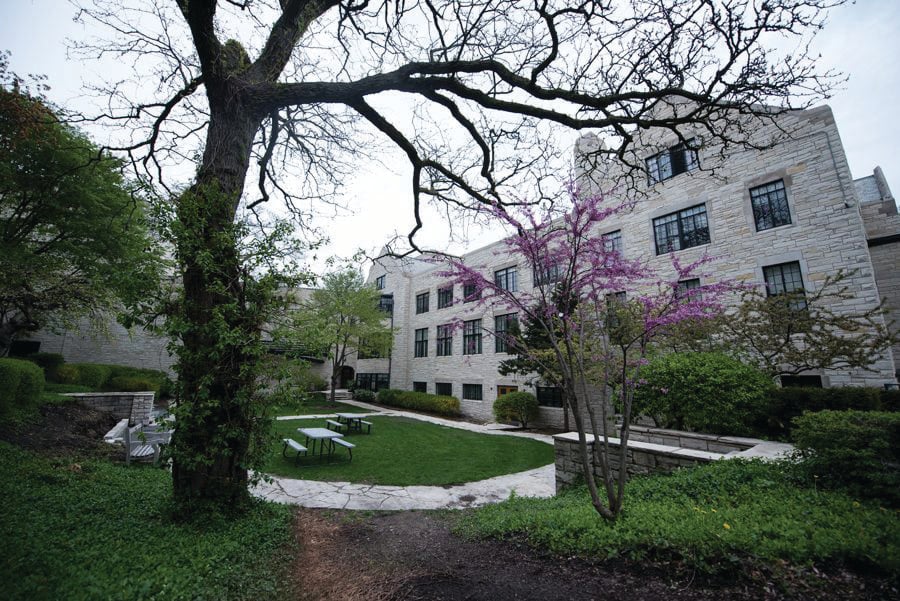Business and Finance VP Johnson and Provost Holloway present 2019 fiscal report to Faculty Senate
Daily file photo by Colin Boyle
Scott Hall, 601 University Place. Students asked for better pathways of communication with the Board of Trustees on divestment issues at Thursday’s Advisory Committee on Investment Responsibility meeting.
January 15, 2020
Provost Jonathan Holloway and Senior Vice President for Business and Finance Craig Johnson presented Northwestern’s 2019 financial report at the Faculty Senate Wednesday night in Scott Hall’s Guild Lounge.
The presentation outlined the University’s fiscal performance in 2019 as well as its spending over the past decade. Faculty had a chance to ask questions of Holloway and Johnson.
Holloway said achieving the past fiscal year’s $68.7 million budget surplus required a “big culture change” toward a more centralized Northwestern administration.
“We have changed so many policies, practices and structures that it would be exquisitely difficult to run into the same kind of problem we ran into before,” Holloway said.
Holloway said the administration hasn’t always needed such rigorous fiscal discipline because Northwestern had “so much cash wealth for such a long time.”
Given the past year’s fiscal success, Holloway said the University can now expand the faculty compensation pool, though only “modestly so.”
“It will not be enough to make amends for the last two years, but I hope it is the beginning of a series of trends of growth in the compensation pool,” he said.
Art history professor Claudia Swan asked how raises would be allocated considering the existing gap in compensation for female faculty. Holloway said the administration would follow up by drawing upon Northwestern data on its female faculty members’ salaries, Faculty Senate’s salary committee reports and the deans of each school.
Johnson said the University spent $590.4 million on recruiting and replacing faculty during the past 10 years. Philosophy professor and past Faculty Senate president Baron Reed asked whether the administration tracks how spending on compensation is allocated between ordinary raises and retention offers.
Johnson said this can be difficult to track since retention offers take a variety of forms, including direct salary adjustments.
“We haven’t done the regression on our compensation levels and then people coming and asking for retentions, but we certainly do use the data the Senate comes up with,” he said.
Johnson said the administration asks the deans to examine this as well, and Holloway added most retention actions are overseen by deans.
Holloway also said the administration tries to avoid “retentions that keep eating.”
“If we are making measured guesses that if we are retaining somebody who has a successful research portfolio, ideally it will either pay for itself from the beginning or will start paying for itself within a few years,” he said.
Referencing high turnover rates, McCormick professor Hermann Riecke asked how the administration plans to better retain departmental staff at Northwestern.
Johnson cited the December hiring of a new vice president of human relations, former Motorola executive Manuel Cuevas-Trisán, as well as plans to have an increased faculty and staff pool in fiscal year 2020.
“It is a very hot labor market now,” he said. “We’ve seen it particularly in IT. There’s a lot of folks departing for high-paying jobs in the data analytics industry and others.”
The Senate session ended soon after Holloway and Johnson finished presenting.
Faculty Senate President and Feinberg professor Lois Hedman congratulated a few professors on various recent achievements, acknowledged Craig LaMay being named interim dean of Northwestern University in Qatar and said numerous Senate committees may be ready to present work at the next Senate meeting on February 19.
Email: [email protected]
Twitter: @jacksonfire123
Related Stories:
– Northwestern Faculty Senate demonstrates support for the Hong Kong protesters


